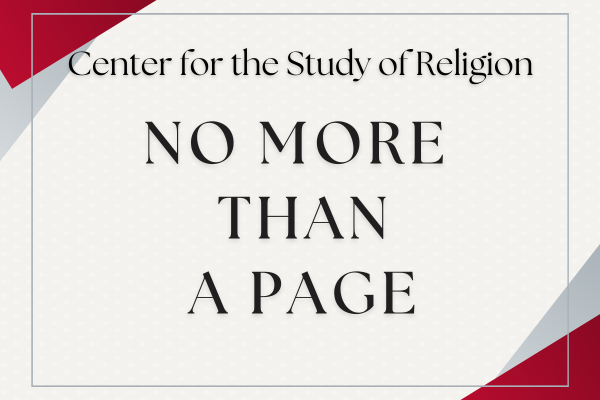
Please join us for the next installment in our "No More Than A Page" series. This series gives an opportunity for faculty and advanced graduate students to receive feedback on their research in process. Presenters provide attendees with a one-page summary of their current research and attendees engage in a lively discussion.
Zari Mahmoudi will present "Ṣūfī Women and Chivalric Spirituality Gendered Piety and Spiritual Authority in the writings of Farīd al-Dīn ʿAṭṭār (ca. 1145-1221) and Jāmī (1414-1492)." Zari is a Ph.D. Candidate in the Department of Near Eastern Languages and Cultures.
Medieval Islamic mysticism, also known as Ṣūfism, created spiritual practices, institutions, and literary works that fostered and cultivated competing visions of the ideal spiritual path in the Islamic world. Muslim mystics embedded the ideals of these visions within spiritual hierarchies between masters and disciples, institutions such as Ṣūfī lodges and brotherhoods, and literary works like anthologies of poetry and the hagiographic tales of pious exemplars. As most of these mystics were men, they characterized their ideal spiritual path as the acme of manly virtues, a chivalric piety they called “youthful manliness” ( futuwwah in Arabic and javānmardī in Persian). Zari will delve deeply into all the examples of Sufi women, their existence, and their role in Tazkirat al-Awliā by Attār (12th century) and Nafahāt al-Uns Min Haḍarāt al-Quds by Jāmi (15th century).
This in-person event is free and open to the public. Find Zari's one page of research through the PDF link below.
The Humanities Institute and its related centers host a wide range of events, from intense discussions of works in progress to cutting-edge presentations from world-known scholars, artists, activists and everything in between.
We value in-person engagement at our events as we strive to amplify the energy in the room. But we also recognize the fact that not all our guests will be able to visit our space. Zoom access will be available to this event upon request. If you wish to have such access, or you would like to request other accommodations for this event, please send your request to Connor Behm: behm.42@osu.edu.
